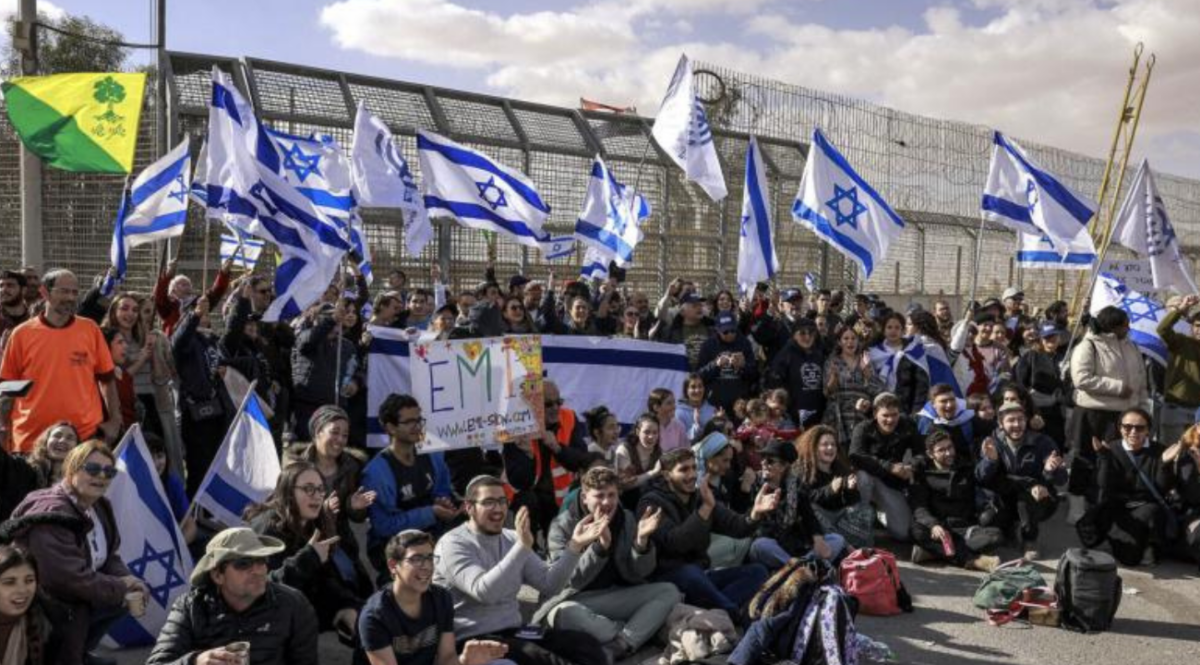Table of Contents
Sanctions Imposed by the US
The United States has sanctioned the far-right Israeli group Tsav 9, accusing it of violent actions against humanitarian aid convoys heading to Gaza. These sanctions, enacted under an executive order signed by President Joe Biden in February, aim to address threats to stability in the West Bank and hinder peace efforts. The US State Department has labeled Tsav 9 as a “violent, extremist Israeli group” for blocking aid convoys, attacking trucks, and worsening the humanitarian crisis in Gaza.
The Emergence of Tsav 9
Tsav 9, also referred to as Tzav 9, was established in January of this year. The group’s name is inspired by “Tzav-8,” the emergency call-up order for Israeli military reservists. It was formed by Israeli settlers, reservists, and families impacted by the Hamas attacks on October 7 last year. Members of Tsav 9 believe that humanitarian aid to Gaza often ends up in Hamas’ hands, and they strongly oppose such aid deliveries.
Since its formation, Tsav 9 has been involved in numerous violent actions aimed at disrupting aid to Gaza. Their tactics include road blockades, harassment of drivers, and vandalism of aid trucks. The group has notably attacked convoys at the Kerem Shalom crossing, setting vehicles on fire and injuring drivers and Israeli Defense Forces (IDF) personnel. In May, Tsav 9 escalated its efforts by looting and burning two aid trucks near Hebron, further worsening the humanitarian conditions in Gaza.
International and Domestic Reactions
The US response to Tsav 9’s actions has been prompt and firm. National Security Adviser Jake Sullivan condemned the attacks as “utterly unacceptable.” Aaron Forsberg, Director of the State Department’s Office of Sanctions Policy and Implementation, emphasized the US’s commitment to holding perpetrators accountable using all available tools. Forsberg reiterated the US’s stance on targeting individuals and entities that threaten peace and stability in the region, regardless of their background.
Inside Israel, reactions to Tsav 9 are mixed. While the group’s violent methods have attracted international criticism, there is significant domestic support for their stance against aid to Gaza. Polls show that a majority of Israelis favor restricting or stopping humanitarian aid to Gaza. This support is partly due to concerns that aid might strengthen Hamas, the group responsible for attacks on Israel.
Broader Context of Settler Violence
Tsav 9’s actions are part of a broader trend of settler violence in the region. Palestinians and human rights organizations have often criticized the Israeli military and police for not adequately addressing settler attacks. The recent surge in violence has intensified since the conflict between Israel and Hamas escalated on October 7, 2023.
The Israeli government’s response has been controversial. National Security Minister Itamar Ben Gvir has been accused of being too lenient on settler violence. Additionally, there are reports that some Israeli security forces might have informed Tsav 9 activists about the locations of aid convoys. These allegations highlight the complex and often contentious nature of the Israeli government’s approach to internal security and settler activities.
The Humanitarian Crisis in Gaza
Tsav 9’s actions have significantly worsened the humanitarian crisis in Gaza. The blockade and attacks on aid convoys have disrupted the delivery of essential supplies, including food and medical aid, leading to severe shortages and famine-like conditions. The international community has expressed serious concerns over the deteriorating situation and the need for unimpeded humanitarian access to Gaza.
Conclusion
The US sanctions against Tsav 9 represent a significant effort to address violence and instability in the West Bank and Gaza. While the group’s actions have some domestic support in Israel, the international community, led by the US, is taking a strong stand against the obstruction of humanitarian aid. The evolving situation underscores the need for a balanced approach that addresses security concerns while ensuring humanitarian aid reaches those in need in Gaza.



